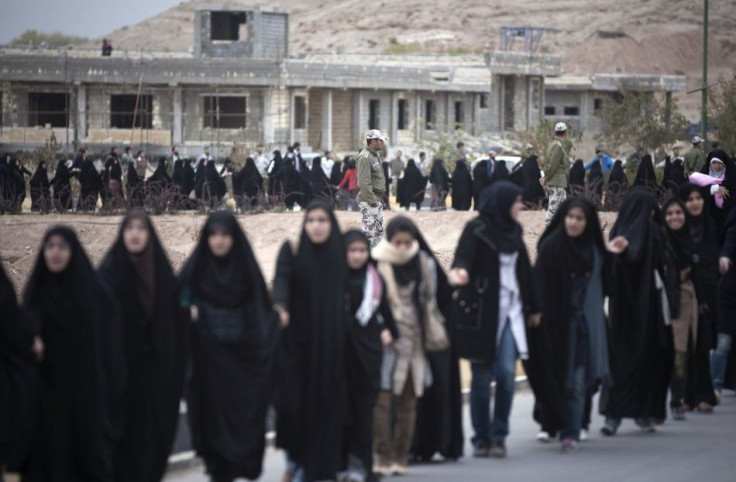Iran's Uranium 'Discrepancy' Still Unresolved: U.N. Watchdog

Iran has yet to clarify a discrepancy in uranium quantities at a Tehran research site, as measurements by international inspectors last year failed to match the amount declared by the laboratory, according to a United Nations nuclear watchdog report released Friday.
The United States has expressed concern the material may have been diverted to suspected weapons-related research activity.
U.N. inspectors have sought information from Iran to help explain the issue after their inventory last August of natural uranium metal and process waste at the research facility in Tehran measured 19.8 kilograms (43.7 pounds) less than the laboratory's count.
Experts say such a small quantity of natural uranium could not be used for a bomb, but that the metal could be relevant to weapons-linked tests.
The discrepancy remains to be clarified, said the latest quarterly report on Iran by the U.N. International Atomic Energy Agency, which was issued to member states on Friday evening.
The 11-page IAEA document also showed that Iran had sharply increased its uranium-enrichment drive. The report's findings, adding to fears of escalating tension between Iran and the West, sent oil prices higher.
Iran says it is enriching uranium only as fuel for nuclear power plants, not atomic weapons, but its refusal to curb the activity has drawn increasingly tough sanctions aimed at its oil exports.
In discussions with Iran this month about the discrepancy at the Jabr Ibn Hayan Multipurpose Research Laboratory (JHL), the IAEA said it had requested access to records and staff involved in uranium metal conversion experiments from 1995 to 2002.
Iran indicated that it no longer possessed the relevant documentation and that the personnel involved were no longer available, the U.N. agency's report said.
Uranium Analysis
The IAEA said Iran had suggested the discrepancy may have been caused by a higher amount of uranium in the waste than had been measured by the U.N. inspectors.
In light of this, Iran has offered to process all of the waste material and to extract the uranium contained therein, it said. The IAEA said it had also begun taking additional analysis samples of the material involved.
Iran's envoy to the Vienna-based U.N. agency, Ali Asghar Soltanieh, last year dismissed the reported discrepancy as absolutely not an issue.
But a senior U.S. official said in November it required immediate resolution, citing information indicating that kilogram quantities of natural uranium metal had been available to Iran's military program.
Enriched uranium can be used to fuel power plants, which is Iran's stated aim, or to provide material for weapons if refined much further, which Western states suspect is Iran's ultimate target.
Last November, the IAEA presented a stash of intelligence indicating that Iran has undertaken research and experiments geared toward developing nuclear-weapons capability, prompting Western states to increase sanctions on Tehran.
Friday's IAEA report also gave details of its mission to Tehran this week where Iran failed to respond to allegations of research relevant to developing nuclear arms -- a blow to the possible resumption of diplomatic talks that could help calm worries about a new war in the Middle East.
(Reporting by Fredrik Dahl; Editing by Rosalind Russell)
© Copyright Thomson Reuters 2024. All rights reserved.






















